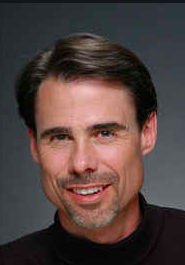|
Symphony
FROM THE NEW WORLD TO THE OLD WORLD
by Peter Lert
Saturday, June 14, 2025
Chamber
MC2 DUO RECITAL CLOSES 222'S SEASON
by Terry McNeill
Saturday, June 14, 2025
Choral and Vocal
CANTIAMO SONOMA'S LUSCIOUS A CAPELLA SINGING IN SEASON ENDING CONCERT
by Pamela Hicks Gailey
Sunday, June 8, 2025
Symphony
SRS SEASON ENDS WITH RESOUNDING TA-TA-TA-BANG
by Terry McNeill
Sunday, June 1, 2025
Symphony
YOUTHFUL VIRTUOSITY ON DISPLAY AT USO'S MAY CONCERTS
by Peter Lert
Saturday, May 17, 2025
Symphony
MYSTICAL PLANETS AND LIVELY GERSHWIN ORTIZ AT FINAL SRS CONCERT
by Peter Lert
Sunday, May 4, 2025
Symphony
VSO'S CONCERT MUSIC OF TIME, MUSIC OF PLACE
by Peter Lert
Sunday, April 27, 2025
VOCAL ELEGANCE AND FIRE AT THE 222'S RECITAL APRIL 26
by Pamela Hicks Gailey
Saturday, April 26, 2025
CANTIAMO SONOMA SINGS AN INSPIRED GOOD FRIDAY MOZART REQUIEM CONCERT
by Pamela Hicks Gailey
Friday, April 18, 2025
DRAMATIC SHOSTAKOVICH SYMPHONY CLOSES PHILHARMONIC'S 25TH SEASON
by Terry McNeill
Sunday, April 13, 2025
|
 |
 Counter Christopher Fritzsche |
INSPIRED SONOMA BACH CONCERT IN GLAZER CENTER
by Pamela Hicks Gailey
Saturday, October 26, 2019
On October 25 Sonoma County residents were being put on notice that due to the wind-whipped and rapidly spreading Kincade Fire in Geyserville, many parts of the county would soon need be evacuated. Sonoma State University had closed the campus for the weekend, which meant that Sonoma Bach's season opener, scheduled for the afternoon of the 26th, would have to have to be moved from Schroeder Hall to a different venue.
That venue luckily turned out to be the Glaser Center in downtown Santa Rosa, a comfortably sized and appropriately intimate space for the Green Mountain Consort, Live Oak Baroque Orchestra, countertenor Christopher Fritzsche and lutenist Kevin Cooper to work their magic in a program of lovely secular Elizabethan music, led by Robert Worth.
The recital was entitled This Scepter'd Isle, and featured the works of four Elizabethan all-stars: madrigals and songs by Byrd and John Wilbye, dance music of Antony Holborne, and lute pieces and songs by Dowland. The recital was by turns light and lively, dreamy or melancholy, beautifully balanced and paced. It was cleverly organized thematically by text and mood into nine groups of three pieces: a vocal solo followed by a dance piece and then a madrigal for either four or five voices, with additional opening and closing pieces for each half of the program.
For a group of worried people both onstage and off (me included), it was an oasis of inspiring virtuosity and beauty.
Live Oak members included violinists Aaron Westman and Anna Washburn; Maria Caswell, viola; William Skeen and Mary Springfels playing viol; and Phebe Craig, organ, and they played the dances of Holborne brilliantly and were joined by guest lutenist Kevin Cooper who also played the theorbo. Mr. Cooper mostly played the long-necked theorbo, which served as a plucked or strummed bass anchor for the instrumental ensemble, and switched to the smaller bent-neck lute with its brighter, dryer quality for his solo accompaniments. His featured solo, Dowland's beloved "Lacrimae pavan", brought the room to a sonic `standstill. One Dowland song in the second half, "Go crystal tears", featured the countertenor accompanied by viola and viols, and gave a plainer, ever so slightly harsh and emotionally honest quality that I loved.
The song texts, all anonymous save Byrd's "My mind to me a kingdom is" by Sir Edward Dyer, were very entertaining, very contemporary, and prove the old saw that the more things change, the more they stay the same. They ran the gamut of emotional content, from playful to enamored to miserable. I was glad to have the printed texts in hand because due to multiple voices all going together, often at delightfully breakneck speed, plus staggered entrances and high-sitting vocal lines, understanding the words was challenging.
Guest counter-tenor Christopher Fritzsche brought a beautifully clear and resonant mezzo-soprano to the proceedings, joining the Consort as the fifth voice on several of the madrigals. The high tessitura of his solos, particularly Dowland's beautiful "Come heavy sleep", did not at all strain his resources. He sang with great evenness of tone, with agility to match his beauty of his sound, and he sailed through the demanding program.
The complex demands of one-on-a-part madrigal singing are formidable. Pure tone, pitch, blend, and perfect ensemble are needed to create an experience of effortlessly casual musical making. It goes without saying that the Green Mountain Consort (Dianna Morgan, soprano; Ruth Escher, mezzo-soprano; Paul Haile, tenor; and bass Robert Worth) possess all the above qualities, and they performed superbly one tasty madrigal after another. With Mr. Worth needing only to begin and end pieces, they sang virtually flawlessly as one mind, one voice.
Ms. Morgan's pure and flexible soprano soared over the lower voices, but never dominated the group. I heard every voice distinctly: Ms. Escher's warm mezzo, Mr. Haile's bright high tenor and Mr. Worth's mellifluous bass. Mr. Fritzsche joined as alto on several five-part numbers.
Altogether it was a charming and inspiring afternoon, the audience dispersed seemingly fortified to take care of homes and families (some to evacuate a mere twelve hours later), uplifted by this splendid concert.
|
